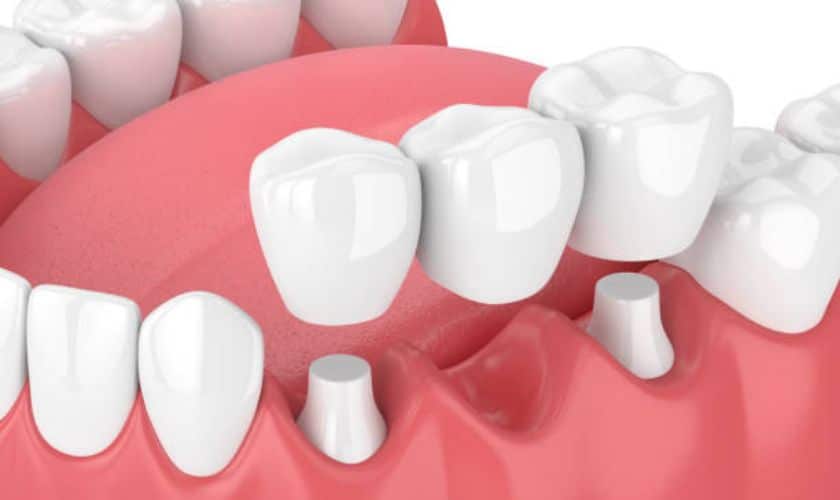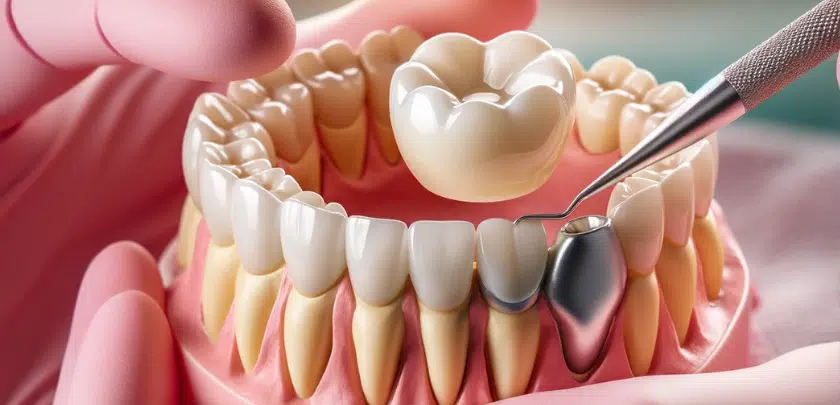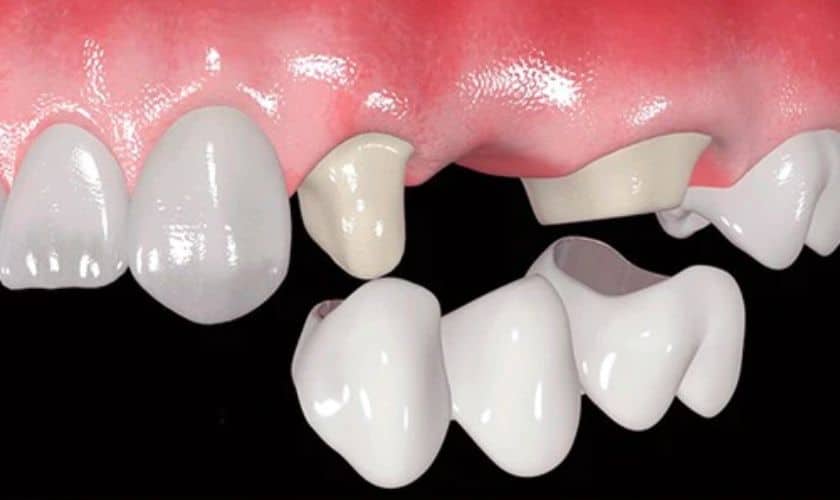
Unveiling the Power of Dental Crowns: Reignite Your Smile
Welcome to the world of dental crowns, where the power to reignite your smile lies. Dental crowns are versatile restorations that can transform damaged or imperfect teeth into beautiful, functional works of art. These custom-made caps cover the entire visible portion of a tooth, providing strength, protection, and aesthetic enhancement. By unveiling the power of dental crowns, you can say goodbye to chipped, discolored, or misshapen teeth. With their ability to blend seamlessly with natural teeth, dental crowns can reignite your smile, boosting your confidence and improving your overall oral health. Let’s embark on a journey to discover the incredible potential of dental crowns and unlock the radiant smile you deserve.
Dental Crowns: Overview
Dental crowns are dental restorations that encase a damaged or weakened tooth, providing strength, protection, and aesthetic improvement. Made from durable materials like porcelain, ceramic, or metal alloys, dental crowns are custom-designed to match the shape, size, and color of your natural teeth. They can effectively address various dental issues such as tooth decay, fractures, discoloration, or misalignment. By covering the entire visible portion of the tooth, they restore its shape, function, and appearance, allowing you to regain a confident and healthy smile. With proper care and maintenance, dental crowns can provide long-lasting results and contribute to your overall oral well-being.
Types of Dental Crowns
1. Porcelain Crowns: These crowns are made of porcelain material that closely resembles the natural color and translucency of teeth, providing a highly aesthetic result.
2. Ceramic Crowns: Ceramic crowns are known for their excellent durability and natural appearance. They are often used for front teeth restorations.
3. Metal Crowns: Metal crowns, such as gold or silver alloy crowns, are known for their strength and longevity. They are ideal for back teeth restorations where aesthetics is not a primary concern.
4. Porcelain-fused-to-Metal (PFM) Crowns: These crowns combine the strength of a metal base with a porcelain overlay, providing both durability and a natural appearance.
5. Zirconia Crowns: Zirconia crowns are highly durable and offer excellent aesthetic results. They are known for their strength and resistance to chipping or cracking.
6. Composite Resin Crowns: These crowns are made of a tooth-colored composite resin material, providing a more affordable option for tooth restoration with good aesthetics.
7. Temporary Crowns: Temporary crowns are typically made of acrylic or stainless steel and are used to protect the tooth while the permanent crown is being fabricated.
Positive Aspects of Dental Crowns
1. Enhanced Protection: They provide a protective barrier for weak, cracked, or decayed teeth. By covering the entire tooth structure, they prevent further damage and fracture, extending the tooth’s lifespan.
2. Restored Functionality: They restore the functionality of compromised teeth, allowing you to bite, chew, and speak with ease. They provide stability and support to weakened teeth, enabling you to enjoy a diverse range of foods and maintain proper oral function.
3. Aesthetically Pleasing: They are designed to match the color, shape, and size of your natural teeth, ensuring a seamless and aesthetically pleasing appearance. They can effectively conceal dental imperfections such as discoloration, misalignment, or irregular shape, enhancing the overall beauty of your smile.
4. Long-lasting Durability: Made from durable materials, dental crowns are built to withstand the forces of biting and chewing. With proper oral hygiene and regular dental check-ups, they can last for many years, providing a long-lasting solution for tooth restoration.
5. Versatile Applications: They can be used to address a variety of dental issues, including tooth decay, cracks, fractures, large fillings, root canal-treated teeth, and cosmetic concerns. Their versatility makes them a valuable tool in restoring and improving the appearance and functionality of teeth.
Suitable Candidates For Dental Crowns
1. Damaged Teeth: Individuals with teeth that are cracked, fractured, or severely worn down can be suitable candidates for dental crowns. Crowns can restore the structural integrity of the teeth and protect them from further damage.
2. Decayed Teeth: Teeth affected by significant tooth decay may require these crowns to provide strength and protection after the decayed portions are removed. Crowns can help restore the shape, function, and appearance of the affected teeth.
3. Root Canal-Treated Teeth: Teeth that have undergone root canal treatment are often weakened and may require dental crowns to provide reinforcement and prevent potential fractures. Crowns can seal and protect the treated tooth, restoring its functionality.
4. Misshapen or Discolored Teeth: Dental crowns are also suitable for individuals with teeth that are misshapen or severely discolored. Crowns can improve the appearance of these teeth, enhancing their shape, size, and color for a more aesthetically pleasing smile.
5. Large Fillings or Dental Bridges: Teeth with large fillings or those that are part of a dental bridge can benefit from dental crowns. Crowns can provide added support and stability to these dental restorations, ensuring their longevity and functionality.
Taking Care Of your Dental Crowns
1. Practice Good Oral Hygiene: Maintain a regular oral hygiene routine by brushing your teeth twice a day and flossing daily, including around your dental crowns. Use a soft-bristle toothbrush and non-abrasive toothpaste to avoid damaging the crowns or surrounding teeth.
2. Avoid Chewing Hard or Sticky Foods: Be cautious when eating hard or sticky foods as they can potentially damage or dislodge your dental crowns. Opt for softer foods and cut larger items into smaller, bite-sized pieces to minimize stress on the crowns.
3. Wear a Nightguard (if necessary): If you grind or clench your teeth at night, wearing a nightguard can protect them from excessive force. Consult your dentist to determine if a nightguard is recommended for your specific situation.
4. Visit Your Dentist Regularly: Schedule regular check-ups with your dentist for professional cleanings and examinations. They will inspect them for any signs of damage or deterioration, and address any issues promptly.
5. Avoid Habits Damaging to Dental Crowns: Refrain from habits such as biting your nails, chewing on ice, or using your teeth to open packaging. These actions can put undue stress on them and increase the risk of damage or displacement.
In conclusion, dental crowns offer a powerful solution for restoring and enhancing damaged or imperfect teeth. With their ability to provide protection, functionality, and aesthetic improvement, they can transform smiles and boost confidence. By practicing proper oral care and seeking regular dental check-ups, dental crowns can provide long-lasting benefits and contribute to overall oral well-being.+
FAQs
The lifespan of dental crowns varies depending on several factors, including oral hygiene practices, eating habits, and the material used. On average, they can last between 10 to 15 years. However, with proper care and regular dental check-ups, they can even last longer.
They can be made to closely match the color, shape, and size of your natural teeth, ensuring a seamless and natural appearance. Dentists work with various materials, such as porcelain or ceramic, to create dental crowns that blend harmoniously with your existing teeth, making them virtually indistinguishable.
They are generally considered safe and have a low risk of complications. However, some potential risks include tooth sensitivity, gum inflammation, or crown fracture. It’s important to choose an experienced dentist and follow proper oral hygiene practices to minimize the chances of such complications. Additionally, maintaining regular dental visits allows the dentist to monitor the condition of your dental crowns and address any issues promptly.



